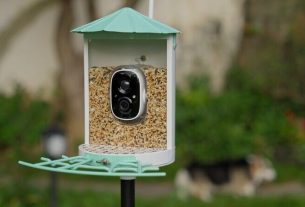|
Getting your Trinity Audio player ready...
|
When someone finally answered the phone, it wasn’t her landlord. It was a police officer, who told Bae that her landlord had been found dead in a motel in Seoul a few days earlier.
Bae described that moment as one of the worst in her life. She is one of the hundreds of South Koreans who have not been able to reclaim massive housing deposits after their landlord — known as the “villa king” by the local press, and identified only by his surname, Kim, by government authorities — died before paying his tenants back.
Government officials suspect that Kim’s tenants each stand to lose hundreds of thousands of dollars. Bae said that she and her husband are facing the possibility of losing their entire deposit of 254 million Korean won, or about $200,000.
Unlike in many parts of the world, where a rental deposit is usually equivalent to one or two months’ rent, many homes in South Korea are leased through an agreement called “jeonse,” also known as key money. Instead of paying monthly rent, tenants give their landlord a large upfront deposit — often hundreds of thousands of dollars. The landlord earns interest off the deposit and, in theory, returns the deposit at the end of the lease.
But Kim — who owned more than 1,000 properties at the time of his death, many of them in small apartment buildings that are known as “villas” in South Korea — had paid back little of the tens of millions of dollars he received in security deposits, according to former tenants and government officials. One estimate puts the combined unpaid sum at $160 million, according to the JoongAng Ilbo, a South Korean newspaper. Most of the affected properties are in or around the capital, Seoul.
The scale of the problem has grabbed the attention of top politicians, while law enforcement officials are investigating.
President Yoon Suk Yeol promised during a nationally televised program last week to take action that would alleviate the pain of the villa king’s “innocent victims.” Won Hee-ryong, South Korea’s minister of land, infrastructure and transport, has pledged to ensure that Kim’s tenants “don’t have to cry.”
The financial fiasco has stirred public uproar, as hundreds of tenants face the possibility of losing several years’ worth of income. According to the World Bank, the average wage earner in South Korea made about $35,000 in 2021, which is about Bae’s income. Her deposit would be roughly worth six years of her salary.
A government task force is investigating how Kim spent his tenants’ security deposits, officials said. Investigators are also exploring potential criminality and the possibility that Kim had accomplices, according to a government statement, while South Korea’s Justice Ministry is looking at legal routes that could help tenants reclaim their deposits.
But for his tenants, there is no immediate remedy. They now must wait months, possibly years, for courts and government authorities to sort out the financial mess that Kim left behind.
Liabilities from a deceased person can be paid if their relatives agree to inherit their wealth. But Kim had an outstanding property tax bill of around $5 million, according to South Korea’s semiofficial Yonhap News agency, along with tens of millions of dollars in unreturned deposit money. Kim’s family has so far declined to assume the liabilities, according to the Korea Housing and Urban Guarantee Corporation, a government-backed insurance company known as HUG. The insurer is in touch with family members, a HUG official said, speaking on the condition of anonymity to speak freely about the case.
Kim’s relatives could not be reached immediately for comment.
Bae was among the tenants who insured their deposits through HUG. However, HUG has told customers such as Bae that it cannot pay her the insurance money, at least for now, because it has no way of filing claims against the deceased Kim, nor his relatives, who have not become his legal heirs.
Bae said promises from high-ranking politicians and the government now “ring hollow” and sound like political theater. She has not been proactively contacted by law enforcement officials. “They are inspiring very little confidence,” she said.
“They failed in a way,” said Kwan Ok Lee, a professor who researches urban planning and real estate at the National University of Singapore, of the government’s lack of safeguards for jeonse tenants. The debacle set off by Kim’s death is notable for its scale, Lee said, but is “not the first time something like this has happened.”
“This has been expected,” she said. “That’s why it’s very sad.”
Jeonse was born from the lack of a formal banking system when South Korea was a poor nation in the 1950s, Lee said. But in modern times, “most scholars agree that [jeonse] is an inefficient system,” she said.
“Jeonse has created so many problems,” she said. Those issues, like the risk of becoming victims of fraud, disproportionately impact lower- and middle-income renters — “the people who get stuck like this.”
Jeonse problems appear to be on the rise. In 2018, HUG paid $63 million in insurance for 372 homes whose owners could not repay their tenants’ security deposits. As of October this year, HUG has paid about $640 million in insurance for 3,754 homes, according to figures that the company submitted to Kim Hack-yong, a South Korean lawmaker.
South Korea’s real estate market is “slowly shifting” toward a monthly rent system, such as in other countries, Lee said.
It would be tricky for the government to suddenly abolish jeonse, as many renters and landlords prefer it, but “at least they could have better mechanisms to protect the tenants,” she said.
Bae, the hairstylist, expressed frustration about the jeonse system, saying there “must be tighter legal safety valves” to protect tenants against the possibility of losing their entire deposits.
If legal protections are not put into place, then it’s time for the jeonse system to go, she said.



